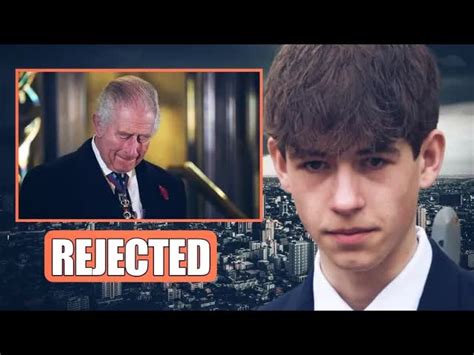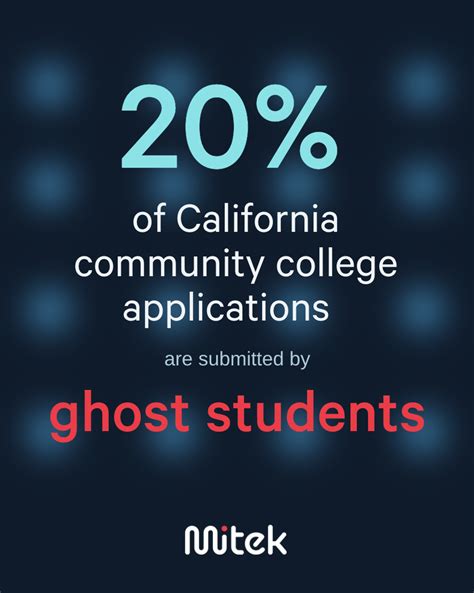
King Charles III is poised to diverge from longstanding royal customs, signaling a modernizing shift in the monarchy, particularly in areas of environmental advocacy, streamlined operations, and a less formal public persona.
King Charles III, only a little over a year into his reign, is actively reshaping the British monarchy, signaling a departure from deeply entrenched traditions. This transformation reflects a desire to modernize the institution and make it more relevant to contemporary society. Key areas of change include environmental advocacy, streamlining royal operations, and adopting a less formal public persona.
Charles’s commitment to environmental issues, predating his ascension to the throne, has become a defining aspect of his reign. He has consistently used his platform to advocate for sustainability, conservation, and climate action, marking a significant departure from the more reserved approach of his predecessors. The King’s outspokenness on these matters underscores his belief in the urgency of addressing environmental challenges and leveraging his influence to promote positive change. This proactive stance distinguishes him from previous monarchs who generally avoided taking strong public positions on potentially divisive issues. According to royal historian Dr. Ashley Hunt, “King Charles sees climate change as an existential threat and believes the monarchy has a duty to speak out.”
Another significant aspect of Charles’s modernization efforts involves streamlining the royal operations. He has long expressed his desire for a “slimmed-down monarchy,” reducing the number of working royals and associated expenses. This restructuring aims to enhance efficiency and reduce the financial burden on taxpayers. The King envisions a more focused and streamlined royal family, concentrating responsibilities among a smaller group of core members. “The goal is to ensure the monarchy remains sustainable and efficient in the 21st century,” a royal insider stated.
In addition to these strategic changes, King Charles is also fostering a less formal public image. He has been observed engaging with the public in a more relaxed and approachable manner, breaking away from the often-stilted formality that characterized previous royal interactions. This shift reflects a conscious effort to connect with people on a more personal level and demonstrate the monarchy’s relevance in a rapidly changing world. This includes embracing modern communication methods, such as social media, to engage with a wider audience and share updates on royal activities.
The King’s efforts to modernize the monarchy have not been without challenges. Some critics argue that these changes risk eroding the traditions and mystique that have long defined the institution. Others raise concerns about the potential for political controversy arising from the King’s outspokenness on environmental issues. However, supporters of Charles’s reforms contend that they are essential for ensuring the monarchy’s long-term survival and relevance in a rapidly evolving society.
Environmental Advocacy
King Charles’s dedication to environmental causes is deeply rooted in his personal history. For decades, he has been a vocal advocate for sustainable agriculture, conservation, and combating climate change. His passion for these issues extends beyond mere rhetoric; he has actively supported numerous environmental organizations and initiatives, both in the United Kingdom and internationally.
As Prince of Wales, Charles established the Prince’s Trust, which has funded numerous environmental projects and provided training and support for young people interested in pursuing careers in sustainability. He also founded the Sustainable Markets Initiative, a global network of business leaders working to accelerate the transition to a sustainable economy.
Since ascending to the throne, King Charles has amplified his environmental advocacy, using his platform to urge global leaders and businesses to take decisive action on climate change. He has delivered powerful speeches at international conferences, emphasizing the urgency of the situation and calling for greater collaboration to address the crisis.
“We have a responsibility to future generations to protect the planet,” King Charles stated in a recent address to the United Nations. “The time for complacency is over; we must act now to avert catastrophic climate change.”
The King’s environmental advocacy has been met with both praise and criticism. Supporters applaud his commitment to addressing one of the most pressing challenges facing humanity, while critics argue that his outspokenness could potentially compromise the monarchy’s neutrality. However, Charles has remained steadfast in his belief that the monarchy has a moral obligation to speak out on issues that affect the well-being of the planet and its people.
Streamlining Royal Operations
The concept of a “slimmed-down monarchy” has been a long-held ambition of King Charles. He believes that reducing the number of working royals and associated expenses is essential for ensuring the monarchy’s long-term sustainability and relevance.
Currently, the British royal family consists of a large number of members, many of whom receive public funding and perform official duties. King Charles aims to consolidate these responsibilities among a smaller group of core members, focusing on those who are directly in line to the throne and their immediate families.
This restructuring is expected to involve reducing the number of royal patronages, streamlining official engagements, and potentially consolidating royal residences. The goal is to create a more efficient and cost-effective royal operation that is better aligned with the needs of the 21st century.
“The King is committed to ensuring that the monarchy provides value for money to the British taxpayer,” a royal source explained. “He believes that a smaller, more focused royal family will be better equipped to serve the nation in the years to come.”
The prospect of a slimmed-down monarchy has generated considerable debate. Some argue that it is a necessary step to modernize the institution and reduce the financial burden on taxpayers. Others express concern that it could weaken the monarchy’s connection to the public and diminish its ability to perform its ceremonial and charitable functions.
Less Formal Public Persona
In addition to strategic and operational changes, King Charles is also cultivating a less formal public persona. He has been observed interacting with the public in a more relaxed and approachable manner, breaking away from the often-stilted formality that characterized previous royal interactions.
This shift reflects a conscious effort to connect with people on a more personal level and demonstrate the monarchy’s relevance in a rapidly changing world. Charles has been known to engage in informal conversations with members of the public, express genuine interest in their lives and concerns, and even share lighthearted moments of humor.
Furthermore, the King has embraced modern communication methods, such as social media, to engage with a wider audience and share updates on royal activities. This includes posting behind-the-scenes photos and videos, responding to public comments, and participating in online discussions.
“The King understands the importance of connecting with people in the digital age,” a royal aide stated. “He believes that social media provides a valuable platform for sharing information, engaging in dialogue, and fostering a sense of community.”
The King’s less formal public persona has been well-received by many, who appreciate his down-to-earth demeanor and genuine interest in connecting with the public. However, some traditionalists have criticized this approach, arguing that it risks eroding the mystique and reverence that have long surrounded the monarchy.
Historical Context
The British monarchy has undergone numerous transformations throughout its long and storied history. From its origins as a powerful institution with significant political authority to its current role as a largely ceremonial head of state, the monarchy has consistently adapted to changing social, political, and economic conditions.
Queen Elizabeth II, who reigned for over 70 years, played a pivotal role in shaping the modern monarchy. She maintained a dignified and reserved public persona, upholding the traditions and protocols that had long defined the institution. While she oversaw significant changes during her reign, including the decline of the British Empire and the rise of modern media, she remained a symbol of stability and continuity.
King Charles III’s reign marks a new chapter in the history of the British monarchy. His efforts to modernize the institution reflect a recognition that it must continue to evolve in order to remain relevant and respected in the 21st century.
Challenges and Criticisms
King Charles’s efforts to modernize the monarchy have not been without challenges and criticisms. Some argue that his changes risk eroding the traditions and mystique that have long defined the institution. Others raise concerns about the potential for political controversy arising from the King’s outspokenness on environmental issues.
Critics also point to the historical role of the monarchy as being politically neutral, arguing that the King’s strong stance on climate change could be seen as taking a political position. This, they argue, could undermine the monarchy’s impartiality and potentially alienate certain segments of the population.
Furthermore, the concept of a slimmed-down monarchy has faced resistance from some members of the royal family and their supporters. There are concerns that reducing the number of working royals could diminish the monarchy’s ability to perform its ceremonial and charitable functions, and that it could weaken its connection to the public.
Future Outlook
Despite these challenges, King Charles remains committed to his vision of a modernized monarchy that is relevant, efficient, and responsive to the needs of the 21st century. He believes that these changes are essential for ensuring the institution’s long-term survival and its ability to serve the nation effectively.
The success of King Charles’s reforms will depend on a variety of factors, including his ability to navigate political sensitivities, manage public expectations, and maintain the support of the royal family and the British people. It will also depend on his ability to balance the need for modernization with the preservation of cherished traditions and values.
As the British monarchy enters a new era under King Charles III, the world will be watching closely to see how he navigates the challenges and opportunities that lie ahead. His reign promises to be a period of significant change and transformation, as he seeks to shape the monarchy into an institution that is fit for the future.
The Commonwealth
The role of the monarchy extends beyond the United Kingdom, encompassing the Commonwealth, a voluntary association of 56 independent and equal countries, almost all of which were formerly part of the British Empire. King Charles III serves as the Head of the Commonwealth, a symbolic role that fosters cooperation and goodwill among member states.
The Commonwealth plays an important role in promoting democracy, human rights, and sustainable development. It provides a forum for member states to address shared challenges, exchange best practices, and collaborate on projects of mutual benefit.
King Charles’s commitment to the Commonwealth is evident in his extensive travels to member states and his active engagement in Commonwealth initiatives. He has emphasized the importance of strengthening ties between Commonwealth countries and working together to address global challenges.
The future of the Commonwealth under King Charles III remains uncertain. Some observers have questioned the organization’s relevance in the 21st century, while others believe that it has the potential to play an even more important role in promoting international cooperation and development. The King’s leadership will be crucial in shaping the future direction of the Commonwealth and ensuring its continued relevance in a rapidly changing world.
Public Opinion
Public opinion towards the monarchy in the United Kingdom is generally positive, although there is a growing debate about its relevance and future role. Support for the monarchy tends to be stronger among older generations, while younger people are more likely to question its value and advocate for a more republican system.
Recent polls have shown a decline in support for the monarchy among younger age groups. This trend is attributed to a variety of factors, including a growing awareness of social and economic inequalities, a greater emphasis on democratic values, and a perceived disconnect between the monarchy and the lives of ordinary people.
King Charles III faces the challenge of maintaining public support for the monarchy at a time when traditional institutions are facing increasing scrutiny. His efforts to modernize the monarchy are aimed at addressing these concerns and demonstrating its relevance to contemporary society.
The Monarchy’s Finances
The finances of the British monarchy are a complex and often controversial topic. The monarchy receives funding from a variety of sources, including the Sovereign Grant, which is a percentage of the profits from the Crown Estate, a vast portfolio of land and property owned by the monarch in right of the Crown.
The Sovereign Grant is used to fund the official duties of the monarch and other members of the royal family, including staff salaries, travel expenses, and the upkeep of royal residences. The monarchy also generates revenue from tourism, merchandise sales, and private investments.
Critics of the monarchy argue that it is too expensive and that the Sovereign Grant should be reduced. They contend that the monarchy should be more transparent about its finances and that it should contribute more to the public purse.
Supporters of the monarchy argue that it provides significant economic benefits to the United Kingdom, including boosting tourism, promoting British culture, and generating revenue for the Crown Estate. They also argue that the monarchy’s ceremonial and charitable functions are essential for national unity and social cohesion.
King Charles III’s efforts to streamline royal operations are aimed at reducing the financial burden on taxpayers and ensuring that the monarchy provides value for money. His commitment to fiscal responsibility is likely to be a key factor in maintaining public support for the monarchy in the years to come.
Conclusion
King Charles III’s reign marks a significant turning point for the British monarchy. His efforts to modernize the institution reflect a recognition that it must adapt to changing social, political, and economic conditions in order to remain relevant and respected.
His commitment to environmental advocacy, his desire to streamline royal operations, and his less formal public persona all signal a departure from the traditions and protocols that have long defined the monarchy. These changes are aimed at ensuring the institution’s long-term survival and its ability to serve the nation effectively.
While King Charles’s reforms have faced challenges and criticisms, he remains committed to his vision of a modernized monarchy that is fit for the future. His reign promises to be a period of significant change and transformation, as he seeks to shape the monarchy into an institution that is responsive to the needs of the 21st century. The success of his efforts will depend on his ability to navigate political sensitivities, manage public expectations, and maintain the support of the royal family and the British people. The world will be watching closely as King Charles III charts a new course for the British monarchy.
Frequently Asked Questions (FAQs)
1. What is King Charles III doing to modernize the monarchy?
King Charles III is modernizing the monarchy in several ways. First, he is emphasizing environmental advocacy, using his platform to speak out on climate change and promote sustainability. Second, he aims to streamline royal operations by reducing the number of working royals and associated expenses. Finally, he is adopting a less formal public persona, engaging with the public in a more relaxed and approachable manner.
2. Why is King Charles advocating for environmental issues?
King Charles has a long-standing commitment to environmental causes, predating his ascension to the throne. He believes that climate change is an existential threat and that the monarchy has a moral obligation to speak out on issues that affect the well-being of the planet and its people. He views this as a crucial area where he can leverage his influence to promote positive change and fulfill a responsibility to future generations.
3. What does “streamlining the monarchy” mean?
“Streamlining the monarchy” refers to King Charles’s plan to reduce the number of working royals and associated expenses. The intention is to make the monarchy more efficient and cost-effective. This may involve consolidating royal patronages, streamlining official engagements, and potentially consolidating royal residences. The goal is to create a more focused royal family that is better aligned with the needs of the 21st century and provides value for money to the British taxpayer.
4. How is King Charles changing the public persona of the monarchy?
King Charles is cultivating a less formal public persona by interacting with the public in a more relaxed and approachable manner. He engages in informal conversations, expresses genuine interest in people’s lives, and uses humor. He also utilizes modern communication methods like social media to connect with a wider audience and share updates on royal activities, fostering a sense of community and demonstrating the monarchy’s relevance.
5. What are the criticisms of King Charles’s modernization efforts?
Some critics argue that King Charles’s changes risk eroding the traditions and mystique of the monarchy. Others raise concerns about potential political controversy from his outspokenness on environmental issues, arguing that the monarchy should remain politically neutral. There are also concerns that reducing the number of working royals could diminish the monarchy’s ability to perform its ceremonial and charitable functions, potentially weakening its connection to the public.









